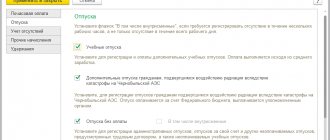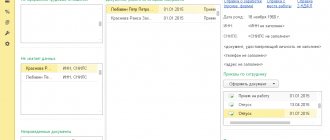- What is single housing: legislative regulation
- Is the threat of an apartment being seized for debts real if it is the only place to live?
- Who can seize property
- What documents must the bailiff present when they seize an apartment for debts?
- Why is the only housing taken away?
- Can their only home be taken away during bankruptcy?
- Does the amount of debt matter?
- Obligations for alimony payments
- Can an apartment be taken away for utility debts?
- Seizure of a share in the right of ownership of housing
- Is an apartment taken away for debts on loans if it has a mortgage?
- Additional property present
- If housing is more expensive than total debt
- When a minor lives in the house
- What if the property is not owned?
- Do bailiffs have the right to take away the husband’s property to offset the wife’s debt?
- Do bailiffs have the right to describe the property of relatives
- What will happen to the apartments after seizure?
- Arbitrage practice
- What property of the debtor cannot the bailiff take away?
- How to protect your property from seizure for debts
- Let's sum it up
What is single housing: legislative regulation
This is the place in which a person permanently resides. At the same time, the citizen does not have any other property that could serve him as a home. According to current laws, the only living space includes: cottages, rooms in communal apartments and other buildings suitable for permanent residence. They must fully comply with all necessary sanitary and epidemiological standards. In Russian legislation, this issue is regulated by 3 legal acts: civil and housing codes, as well as the law on enforcement proceedings in the Russian Federation.
Is the threat of an apartment being seized for debts real if it is the only place to live?
Until recently, people who owned only one room suitable for living did not have to worry that it would be taken away and sold at auction. At the moment the situation has changed somewhat. In 2021, a bill gained great resonance, if passed, the debtor’s home could be confiscated, even if it is the only one. This rule was never adopted. However, borrowers who have obligations to a credit institution should still closely monitor the situation. So, can a bank take away an apartment or a share in it for debts? This is possible in certain cases. When considering such cases, judges follow the law, but with some amendments. For example, if the debtor’s only home is a house, then part of the land plot can be seized and sold to pay off the loan. The borrower must provide evidence that he has no other property in which he can live. The court also has the right to make a decision on the relocation of a citizen who has debt obligations to the bank to a living space or room of unequal conditions.
❗ Eviction from a privatized apartment
If the owner of the premises has debts on utility bills, then eviction is possible, from a theoretical point of view. However, this procedure will take place on the basis of the provisions of Article 446 of the Civil Procedure Code of the Russian Federation in the form of foreclosure under a writ of execution, however, only if this housing is not the only one. Otherwise, this article establishes a direct prohibition on applying the writ of execution to such housing.
A writ of execution is issued by the court based on a decision on the need to eliminate the existing debt. However, in the vast majority of cases, debt collection occurs in the form of imposing on the debtor the obligation to repay the existing debt and pay fines and penalties that the person has incurred.
The eviction procedure is as follows:
- Bailiffs notify the debtor that he has a debt, and the court makes a decision on the need to either repay the existing debt or evict him from the property.
- If the debtor pays the amount indicated in the writ of execution, then the issue of his eviction is removed.
- If the debt is not repaid, and the person has another premises suitable for living, he is evicted there, and the apartment in which the debt arose is taken away to pay off the debt.
- After it has been taken, the apartment is put up for auction so that the debt can be paid from the proceeds.
Privatization of an apartment in 2021
How to sell an apartment with housing and communal services debts
Who can seize property
Regardless of the amount of debt to the creditor, only the court and bailiffs can impose restrictions on real estate. If the bank itself or the collectors threaten to take away your home for non-payment, this is only a psychological, intimidating measure of influence. They do not have such powers. Keep in mind that such actions on their part are illegal, and you have the right to file a lawsuit. Often, arrest does not mean seizure. The citizen still has the right to use the property, but some restrictions will come into force:
- Real estate cannot be donated, sold, or transferred to third parties.
- It is forbidden to rent it out.
- You cannot register anyone or, conversely, deregister anyone.
Important note: if the arrest report states that the citizen cannot use the housing, then he will have to move out of it.
Can I be evicted for non-payment of utilities?
Indeed, the legislator provides for the eviction of a person from an apartment for non-payment of utility bills. What are utilities and what do you need to pay for?
Such services include provision of:
- gas;
- electricity;
- heating;
- garbage removal and general maintenance of the home;
- water supply and drainage.
In order for eviction from the apartment to be possible, it is necessary not to pay in full for all services for 6 months. If a person does not pay only for electricity or heating, then in this case it is only possible to disconnect the apartment from a specific type of service.
The possibility of eviction from an apartment depends primarily on the form of ownership in which it is located. Let's look at the most common options.
From a council apartment
Expert opinion
Noskov Georgy
Lawyer. Experience 12 years. Specialization: civil, family, inheritance law.
The simplest option for eviction is if the tenant does not pay for utilities and lives in a municipal apartment.
In this case, the representative of the owner of the housing (local government), after 6 months from the date of non-payment, must apply to the judicial authority with a claim for eviction. If all the requirements of the law are met, then in 100% of cases the decision is made in favor of the plaintiff.
When residents who do not pay utilities are evicted from a municipal apartment, they must be provided with other housing at the rate of 6 m2 for each family member. It could be a hostel, but it must be within the same municipality.
From a privatized apartment
It is also quite simple to evict a utility defaulter from a privatized apartment, but if he does not have an ownership interest in this housing.
So, if the residents of a privatized apartment have separate personal accounts for payment of utility bills, then the owner of the apartment can go to court and evict the defaulter.
If the owner
Despite the widespread belief that it is impossible to evict a homeowner from an apartment for failure to pay utility bills, it is quite possible to do so. The only exception is if the apartment is the only residence.
In all other cases, municipal services go to court with a claim for eviction and debt compensation. After a positive court decision and its entry into legal force, the writ of execution is transferred to the bailiff service and they sell the apartment at auction.
From the proceeds, the debt for housing and communal services is paid, and the remaining money is transferred to the account of the former owner of the apartment, and he manages it himself.
It is also worth noting that selling an apartment “for debts” is possible only after the court decision has entered into legal force, that is, if the verdict is passed, but you have started paying the money, then the bailiffs will not be able to sell the apartment
Example. The owner of the apartment is Ivanov S.P. For a long time he led an immoral lifestyle and abused alcohol. In this regard, he did not pay the required amounts for services provided by housing and communal services. He was repeatedly sent demands for debt repayment, but Ivanov S.P. ignored them. The representative of the utility services was forced to file a lawsuit to collect the debt and evict the defendant from the apartment. Since the court took into account that this housing is Ivanov’s only one, it decided to collect the amount of debt from the defendant’s other property. The writ of execution was handed over to the bailiffs, who foreclosed on the defendant’s car.
What documents must the bailiff present when they seize an apartment for debts?
When foreclosure of real estate, you are required to provide the appropriate court decision. Also, the bailiff will need to draw up an act with a mandatory inventory of the property. This document is drawn up in the presence of witnesses. It should reflect the following information:
- information about all persons participating in this event;
- name of property and/or rights to it;
- preliminary assessment of the value of the seized object;
- type and duration of restrictions on the use of this property;
- note of seizure;
- the judicial authority to which the property will be transferred for temporary storage;
- a note explaining to the person who will receive the object the rights, obligations and a warning about liability for wasting someone else’s property;
- comments from eyewitnesses present at the arrest.
After the act is completely filled out, it is signed by all citizens present at the seizure.
Read What debts are not allowed to go abroad for: the amount of debt when leaving the country
Grounds for eviction for non-payment
The only basis for eviction for non-payment is long-term, more than six months, debt on utility bills.
For what debt can one be evicted from an apartment?
It is impossible to name the exact amount of debt for which eviction is possible. In each region, payments for utility services are different, just as the communal payment for a three-room apartment, where several people live, differs significantly from the rent for a one-room apartment, where one tenant lives.
Typically, the amount of debt required to initiate an eviction action is based on the monthly payment multiplied by six months.
For example, the Smirnov family must pay a monthly utility bill in the amount of 3,720 rubles. Let's calculate how much debt they must accumulate so that the management company can file a claim to evict them from their premises: 3,720 * 6 = 22,320 rubles. Only after the Smirnovs owe the management company an amount exceeding 22,320 rubles can the latter file an eviction claim.
Where are they being evicted?
Of course, if you are evicted for utility debts, you will not end up on the street. If you live in a council flat, the local authority will be required to provide you with alternative accommodation. But, most likely, it will be a room in a dorm, or at best a separate apartment of a smaller area and less comfortable.
The provision of alternative housing occurs according to social standards - at least six square meters per family member. For example, a family of two will be moved to a dorm room with an area of at least 12 square meters. meters.
Why is the only housing taken away?
Alimony, non-payment of a loan, accumulated utility bills, unpaid amount to a victim involved in an accident - there are a lot of options when a person becomes a debtor. We will answer the most popular questions regarding arrest for debts.
Can their only home be taken away during bankruptcy?
As a rule, banks take away the apartment if it is pledged. Such loan agreements are often drawn up if the borrower takes out a very large amount. Please note that the indication of property in the form of living space in the contract does not constitute its collateral. Only by signing an agreement registered with Rosreestr can the object be seized by the bank as material compensation for non-payment of the loan.
Does the amount of debt matter?
The answer to this question is unequivocal - yes. So, for example, if the debt is about 200-300 thousand rubles, which is much lower than the average market price, then the court is unlikely to rule in favor of the creditor.
Obligations for alimony payments
If there is a debt in payment of financial assistance to the child, there is also a risk of losing real estate. This is especially possible in situations where the unpaid amount is already quite large (equal or almost equal to the approximate cost of a citizen’s living space), and the alimony payer is trying in every possible way to hide his income. Often such people own apartments where the ex-wife lives and also has ownership rights, and she filed a lawsuit. The debtor's share may be seized and transferred to the claimant as compensation for non-payment of alimony.
Can an apartment be taken away for utility debts?
According to the Housing Code, if a citizen has not paid utility bills for 6 months or more, he will most likely be evicted from his home. To apply such sanctions to the debtor, 2 conditions must be met:
- During the specified 6 months, no utility payments were made at all. If even a small part of the debt was repaid during this period, no one will be able to evict you.
- The owner of the house should ignore any attempts from the management company to resolve the situation in a peaceful, civilized way - warning letters, notices of debts and fines, and others.
You can often hear the question for what debt on utility bills can an apartment be repossessed. As a rule, the amount in this case does not play a special role. If the owner has not made payments for more than six months, he has the right to evict him, no matter what debt has accumulated.
Seizure of a share in the right of ownership of housing
Article 446 of the Code of Civil Procedure of the Russian Federation states that it is impossible to withdraw a share when this is the only dwelling in which all family members have the opportunity to live. If the borrower has other real estate, the court will most likely rule in favor of the lender. When considering this issue, one must also take into account that shared ownership is not confiscated when a minor child is registered in such apartments.
Is an apartment taken away for debts on loans if it has a mortgage?
Mortgaged real estate is usually the subject of collateral. Therefore, it is definitely subject to confiscation. These sanctions are usually applied when there is a delay in payments of 3 months or more. The living space is confiscated, even if a small child is registered there.
Additional property present
According to current legislation, alienation of a single dwelling is prohibited. When a person has several houses, they can be seized and put up for auction without any problems.
If housing is more expensive than total debt
Very often, the value of real estate exceeds the amount of the loan taken and unpaid interest. In this situation, can they be evicted from the apartment because of the debt? Yes. For such cases, Russian legislation provides the following procedure. The property is put up for auction and sold at market value. All debts of the citizen are paid off with the funds received. If any money remains from the proceeds, it is returned to the former owner.
When a minor lives in the house
Even if a small child is registered in the apartment, such housing can also be taken away for lack of payment of financial obligations. True, this procedure is quite complicated. The only ones who have the right to give permission to evict children from home are the guardianship and trusteeship service. Before approving such actions, they must conduct a thorough analysis of the child’s living conditions, the state of the living space, and so on. Their decision is particularly influenced by the presence of a second home for a minor. Also a reason for eviction is a deed of gift addressed to a minor citizen. In this case, the housing is seized and put up for auction. Separately, you need to dwell on the living space, which was purchased using maternity capital. The fact is that such real estate belongs to all family members, including small children. Therefore, it will be very difficult for the competent authorities to realize such property.
If a debt has arisen due to non-payment
Following the Law of the Housing Code of the Russian Federation, Article 90, an apartment can be seized from the owner if debt payments are not made without a good reason. Then the company receives a court order and seizes the premises. When housing is social, citizens are not provided with a replacement.
If the apartment is privatized, it is sold, after which the remainder of the sale is returned to the owner, taking into account the deduction of the amount of debt. There are several valid reasons why payment may not be made:
- the owner maintains a person with disabilities;
- the job was lost;
- one of the payer’s relatives (or the owner himself) became seriously ill;
- there was a delay in the payment of wages or pensions.
The authorities can only seize an apartment from ownership if the debt is really high and the property is not the citizen’s only home. Before taking the apartment, the owner is given notices of debts, and then some services are turned off, for example, gas or electricity.
Note! Privatized housing may go to the state after the death of the owner; this is possible if there are no heirs by law or will. Also, housing will be transferred to the ownership of the municipality when the heirs do not apply for rights to the apartment within the prescribed period.
What if the property is not owned?
Can bailiffs seize an apartment for debts when it does not belong to the borrower?
No. If the object is not owned by the debtor, no one has the right to seize property. The obligations do not apply to third parties. However, it is possible to seize the property located in this premises and belonging to the borrower. Read Where to complain about the work of bailiffs: to whom can you write a complaint against the FSSP
The amount of debt at which they can be evicted from their home
If the tenant or user of the residential premises under a social tenancy agreement does not pay for utilities and housing and communal services for a long time, he may be evicted. However, the law does not indicate what the amount of debt should be - eviction occurs if there is debt for more than six months in a row.
If, during the period when a decision was made to evict a person from an apartment for debts, but he paid an amount that even partially repaid the resulting debt, the issue of eviction is removed, and the countdown period begins anew.
If the debt is repaid, then the countdown for justifying the eviction does not begin until the debt arises again.
Do bailiffs have the right to take away the husband’s property to offset the wife’s debt?
As already mentioned, the borrower’s debt does not apply to other people, so the property of the spouse, if the loan is not issued to him, cannot be confiscated. However, the creditor has the right to apply to collect the debtor’s share if the property belongs not only to the citizen, but also to his wife. When these are jointly acquired movables and real estate, an application for the allocation of a share to the borrower may be considered, which will then be confiscated as material compensation. If the husband’s apartment was simply seized for his wife’s debts, such actions are unlawful.
Do bailiffs have the right to describe the property of relatives
The SSP is authorized to describe only the real estate that is owned by the debtor. If a number of people live with the borrower and have certain items in the living space (household appliances, furniture, expensive dishes, etc.), the FSSP can make an inventory if they are not provided with evidence that all this does not belong to the debtor. The bailiffs don't take my word for it. Their task is to comply with the court decision, as well as to seize property that could maximally cover the amount of debt. To prove that certain items belong to relatives, it is necessary to provide contracts, receipts, checks, warranty cards and other documents.
What will happen to the apartments after seizure?
As a rule, apartments seized for debts are put up for auction. The sale of real estate repays the borrower's debt obligation. Sometimes banks try to complete the procedure without bidding. They do this through their distressed asset management. In such cases, the cost of the property is usually indicated at 20-30 percent below the market price. This is done in order to get rid of the burden as quickly as possible and receive financial compensation.
Arbitrage practice
As mentioned above, only justice authorities are able to seize or foreclose on housing space. They also have the power to decide to allocate to the person from whom the property was confiscated another premises (of unequal price and conditions) suitable for living. Thus, the citizen will not be deprived of the constitutional right to housing, but the debt will also be repaid.











